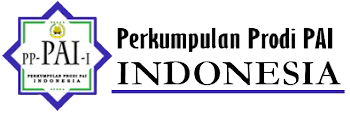HUBUNGAN KECEMASAN DENGAN MOTIVASI MENGHAFAL JUZ ‘AMMA DI MTS PARADIGMA PALEMBANG
DOI:
https://doi.org/10.19109/pairf.v3i1.5091Abstract
The background if this study is based on consideration of the state of students who feel anxious and afraid when memorizing Juz ‘Amma. Students often experience a state of feeling, where he feels weak so that he does not dare and is able to behave and act in a common sense as they should so students must be motivated so that they are able to memorize without being accompanied by feelings of anxiety. Under these conditions, anxiety can affect the motivation to memorize Juz ‘Amma students. This study aims to determine the relationship between anxiety and motivation to memorize Juz ‘Amma in MTs Paradigma Palembang. The problem discussed in this study is there relationship of anxiety with the motivation to memorize Juz ‘Amma in MTs Paradigma Palembang.
This research is a quantitative research. This type of research is correlational, which is research aimed of finding out the relationship of a variable with other variables. Data collection was carried out with documentation and Likert scale, the sample used was class IX (Nine), amounting to 49 students of MTs Paradigm Palembang. The data analysis technique used is the product moment statistical formula.
Results of data analysis using the product moment statistical formula states that the variable anxiety with the motivation to memorize Juz ‘Amma has a significant relationship. This can be proven by the result of product moment calculation is 0.45 with a significant level of 5%, 0.288 and 1% 0.372. This means that arithmetic is greater than t table, so the conclusion Ha (Alternative Hypothesis) is accepted while Ho (null hypothesis) is rejected. Sit can be concluded that there is a significant relationship between anxiety with the motivation to memorize Juz ‘Amma in MTs Paradigma Palembang.












.png)


1.png)



